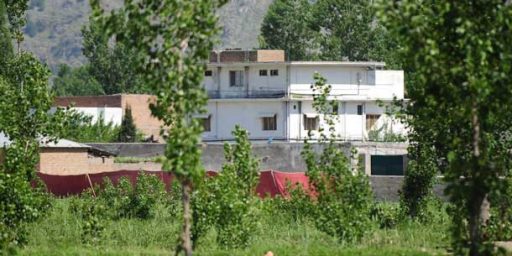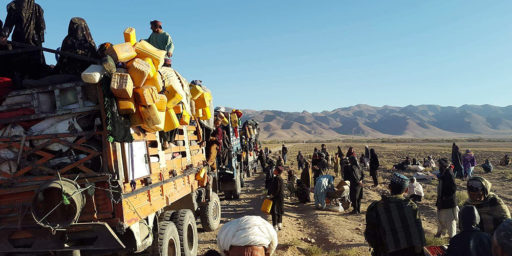The Hunt For Bin Laden
U.S. News has an interesting feature length piece called “The Hunt For Bin Laden,” which details the enormity of the challenge faced by our forces in tracking down the al Qaeda leader. The authors make a reasonable case that bin Laden is probably holed up in Pakistan in some rather primitive conditions and, indeed, a positively medieval cultural environment:
Complicating the challenge for President Musharraf is not just the fierceness of the Pashtuns, who also inhabit much of southern and eastern Afghanistan, but the implacable tribal laws by which they govern themselves. The four key laws are known, collectively, as the Pashtunwali. The first is the law of the jirga, submission to the rule of a summoned council. The second, and perhaps most important in the current situation, is melmastia. This is the rule of hospitality, which forbids harming or dishonoring a guest. Tor demands extreme physical punishment for violations of a woman’s chastity, and badal is the obligation of revenge, which can be–and often is–handed down from one generation to another. U.S. intelligence officials believe there are between 400 and 600 al Qaeda, Taliban, and other foreign fighters in the tribal lands. Pakistani officials place the number slightly higher but say many have fled to Afghanistan and Iran.
The piece goes on at great length describing this tradition and its implications for counter-terrror and counter-insurgency operations. Overall, as one might expect, it’s a rather bleak picture. Our special forces are apparently adapting to their environment quite well in both Afghanistan and Pakistan.




